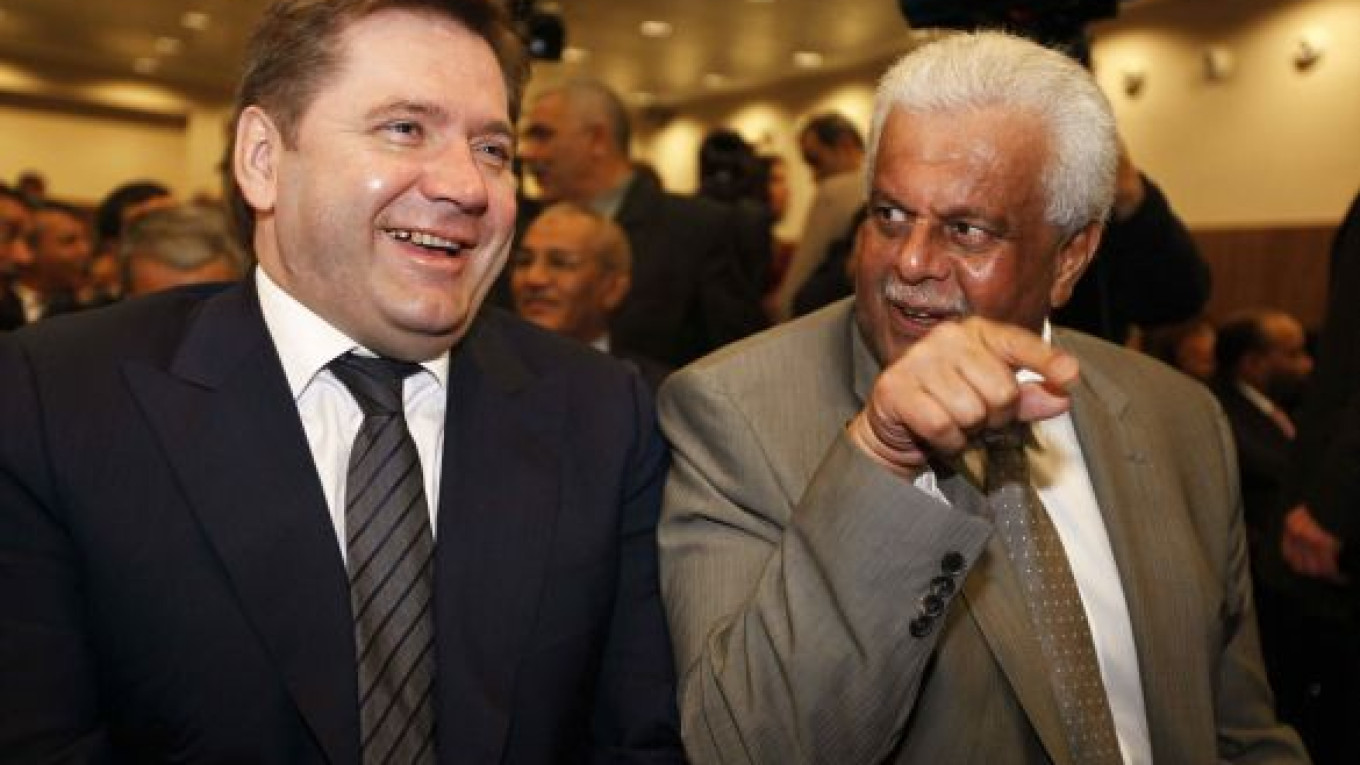Most of the world's leading gas exporters on Monday agreed to seek higher, oil-linked prices for spot sales, a decision that could eventually support suppliers like Russia that already use the method in their long-term contracts.
The Gas Exporting Countries Forum, which accounts for two-thirds of global gas exports, will work independently to reach price parity between gas and oil in their sales contracts, said Chakib Khelil, Algeria's energy minister.
“Gas exporting countries decided to let each country adopt its own strategy,” he told reporters after a meeting of energy ministers fr om member countries in Algeria's coastal city of Oran.
Informally known as the gas OPEC, the 11-country forum began formal meetings only last year and does not have nearly the same price-setting clout as the Organization for the Petroleum Exporting Countries.
The group on Monday approved the plan on individual strategies after European customers were seen shunning most pipeline deliveries — including from forum members Russia and Algeria — in favor of spot purchases that offered much more price flexibility. Liquefied natural gas, or LNG, which dominates the spot market, flooded Europe as a result of a reduced U.S. appetite for the fuel.
Oil prices fluctuated between $80 and $85 per barrel last month, which means that natural gas would have traded at about $11 per million British thermal units, a standard measure of energy.
Even so, pipeline gas sold for $8 per million BTUs last month in Germany, the biggest gas importer in Europe, according to energy consulting firm Wood Mackenzie. Spot market suppliers — such as Qatar, another GECF member — offered LNG for about $5 for the same amount.
The situation prompted Algeria earlier this year to call for production cuts to lim it the supply of LNG, a proposal that appeared to have mustered little sympathy from the rest of the group.
Energy Minister Sergei Shmatko said GECF members voted unanimously to pass the decision to apply individual strategies to remove the disparity with oil prices.
Russia and Qatar, a major LNG supplier that added one more LNG producing plant earlier this month, held a series of high-level talks before Monday's event and agreed to consider development of each other's gas reserves.
Shmatko stressed that there should not be competition between pipeline gas and LNG, which is shipped by tankers after the gas is chilled into a liquid.
“We must do some work to bring stability to the gas market," Shmatko said.
In another policy guideline, a statement issued by the group after the meeting said gas exporters should invest in downstream facilities in consumer countries as a way to bring greater market stability. The exporters will open their gas fields so that consumer countries can participate in tapping the reserves, the statement said.
The forum’s other members are Bolivia, Egypt, Equatorial Guinea, Iran, Libya, Nigeria, Trinidad and Tobago, and Venezuela. Angola and Yemen said Monday that they had considered joining the organization, which has its headquarters in Doha, Qatar.
A Message from The Moscow Times:
Dear readers,
We are facing unprecedented challenges. Russia's Prosecutor General's Office has designated The Moscow Times as an "undesirable" organization, criminalizing our work and putting our staff at risk of prosecution. This follows our earlier unjust labeling as a "foreign agent."
These actions are direct attempts to silence independent journalism in Russia. The authorities claim our work "discredits the decisions of the Russian leadership." We see things differently: we strive to provide accurate, unbiased reporting on Russia.
We, the journalists of The Moscow Times, refuse to be silenced. But to continue our work, we need your help.
Your support, no matter how small, makes a world of difference. If you can, please support us monthly starting from just $2. It's quick to set up, and every contribution makes a significant impact.
By supporting The Moscow Times, you're defending open, independent journalism in the face of repression. Thank you for standing with us.
Remind me later.


